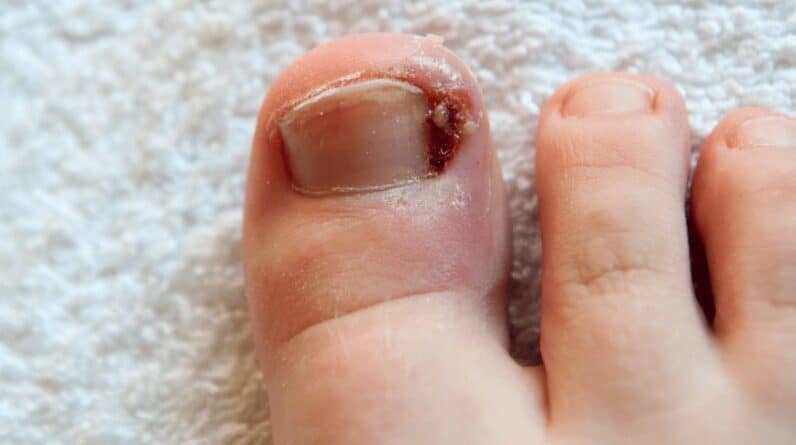The Ultimate Guide to Eating Healthy at 50: Tips and Tricks for a Balanced Diet
As we age, our nutritional needs change and it becomes increasingly important to maintain a healthy and balanced diet. Eating well is not only essential for maintaining good health but also for preventing chronic diseases that can develop later in life. But with so much conflicting information out there, it can be challenging to know where to start.

Dementia Discovery That is Leaving Doctors Speechless (Try This Tonight)
Better than Morphine For Joint Pain… Yet Safer Than Aspirin?
Retire With Freedom. Start Earning Extra Cash Today.
That’s why we’ve put together this ultimate guide to eating healthy at 50, filled with practical tips and tricks to help you achieve a balanced diet. From identifying the right foods to eat to creating a meal plan that works for you, we’ve got you covered. So, whether you’re looking to improve your energy levels, manage your weight, or simply feel your best, this guide will provide you with the tools you need to nourish your body and stay healthy in your 50s and beyond.
The Importance of a Balanced Diet
A balanced diet is one that provides all the necessary nutrients in the right amounts to maintain good health. The amount and type of food you consume affects your energy levels, mood, and overall health. The importance of a balanced diet cannot be overstated, especially as you age. A balanced diet is essential for maintaining a healthy weight, reducing the risk of chronic diseases, and improving mental health.
The main components of a balanced diet include carbohydrates, proteins, fats, vitamins, and minerals. Carbohydrates provide energy for the body, while proteins are essential for building and repairing tissues. Fats provide energy and help absorb vitamins. Vitamins and minerals are important for maintaining good health and preventing diseases.
Eating a balanced diet doesn’t mean you have to give up your favorite foods. Instead, it’s about making smart choices and choosing nutrient-dense foods that provide the most benefits to your body.
Nutrients to Focus on for Individuals Over 50
As we age, our bodies require fewer calories, but our nutrient needs remain the same or even increase. This means that it’s essential to focus on foods that are high in nutrients and low in calories. The following nutrients are especially important for individuals over 50:
### Calcium
Calcium is important for maintaining strong bones and preventing osteoporosis. As we age, our bones become less dense, making them more prone to fractures. Calcium can be found in dairy products, leafy greens, and fortified foods.
### Vitamin D
Vitamin D is essential for calcium absorption and bone health. It can be obtained from sunlight, fortified foods, and supplements.
### Vitamin B12
Vitamin B12 is important for maintaining healthy nerve cells and red blood cells. As we age, our bodies become less efficient at absorbing vitamin B12, making supplementation necessary. Vitamin B12 can be found in animal products and fortified foods.
### Fiber
Fiber is important for maintaining good digestion and preventing constipation. It can also help lower cholesterol levels and reduce the risk of heart disease. Fiber can be found in whole grains, fruits, vegetables, and legumes.
Foods to Eat and Foods to Avoid
Eating a healthy diet involves making smart choices about the foods you consume. The following are foods to eat and foods to avoid:
### Foods to Eat
– Fruits and vegetables: They are high in nutrients, low in calories, and can help prevent chronic diseases.
– Whole grains: They are a good source of fiber, vitamins, and minerals.
– Lean protein: Choose lean meats, poultry, fish, eggs, and legumes.
– Dairy products: Choose low-fat or fat-free options for calcium and vitamin D.
– Nuts and seeds: They are a good source of healthy fats, fiber, and protein.
### Foods to Avoid
– Processed foods: They are often high in calories, salt, and unhealthy fats.
– Sugary drinks: They provide empty calories and can lead to weight gain.
– Saturated and trans fats: These fats can increase the risk of heart disease.
– Salt: Consuming too much salt can increase blood pressure and the risk of heart disease.
Meal Planning and Preparation
Meal planning and preparation are essential for maintaining a healthy and balanced diet. Planning meals in advance can help you make better choices and reduce the temptation to eat unhealthy foods. The following tips can help with meal planning and preparation:
### Plan in advance
Take time to plan your meals for the week ahead. This will help you make better choices and avoid unhealthy options.
### Cook at home
Cooking at home is a great way to control what goes into your meals. It also allows you to experiment with healthy recipes and make meals that suit your taste.
### Use healthy cooking methods
Choose healthy cooking methods such as baking, grilling, and steaming. Avoid frying and using excessive oil.
### Portion control
Portion control is essential for maintaining a healthy weight. Use smaller plates and bowls to control the amount of food you consume.
Tips for Eating Out and Traveling
Eating out and traveling can make it challenging to maintain a healthy diet. However, with a little planning and preparation, it’s possible to make healthy choices.
### Do your research
Before going out to eat, research the menu and choose a restaurant that offers healthy options.
### Make special requests
Don’t be afraid to make special requests, such as asking for sauces and dressings on the side.
### Pack healthy snacks
Pack healthy snacks such as fruits, nuts, and protein bars when traveling to avoid unhealthy options.
Staying Hydrated and the Benefits of Water
Staying hydrated is essential for good health. Water is essential for digestion, absorption, and transportation of nutrients. It also helps regulate body temperature and prevent constipation.
The recommended daily intake of water is 8-10 glasses per day. However, this may vary depending on your activity level, climate, and overall health.
Exercise and its Role in a Healthy Diet
Exercise is an essential component of a healthy diet. It helps maintain a healthy weight, reduce the risk of chronic diseases, and improve mental health. The American Heart Association recommends at least 150 minutes of moderate-intensity exercise per week.
Supplements and Vitamins for Individuals Over 50
Supplements and vitamins can help fill nutrient gaps in the diet. However, it’s important to speak with a healthcare professional before taking any supplements.
### Multivitamins
Multivitamins can help fill nutrient gaps in the diet and may be especially beneficial for individuals over 50.
### Omega-3 fatty acids
Omega-3 fatty acids can help reduce the risk of heart disease and improve brain health. They can be obtained from fatty fish or supplements.
### Probiotics
Probiotics can help improve digestion and boost the immune system. They can be obtained from fermented foods or supplements.
Common Misconceptions about Healthy Eating at 50
There are many misconceptions about healthy eating at 50. The following are some common ones:
### You need to eat less
As we age, our bodies require fewer calories. However, it’s still important to consume enough nutrients to maintain good health.
### You can’t eat your favorite foods
A healthy diet doesn’t mean giving up your favorite foods. Instead, it’s about making smart choices and consuming them in moderation.
### Supplements are necessary
While supplements can be beneficial, they should not be a substitute for a healthy diet.
Conclusion and Final Thoughts
Maintaining a healthy and balanced diet is essential for good health, especially as we age. By focusing on nutrient-dense foods, meal planning and preparation, staying hydrated, exercising, and taking supplements when necessary, you can achieve optimal health and prevent chronic diseases. Remember to make smart choices, consume your favorite foods in moderation, and speak with a healthcare professional before making any significant changes to your diet.






